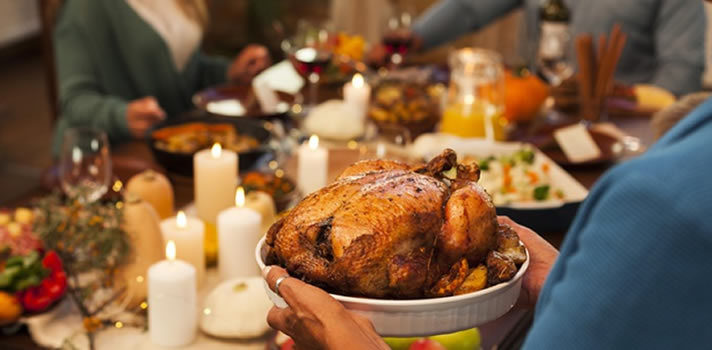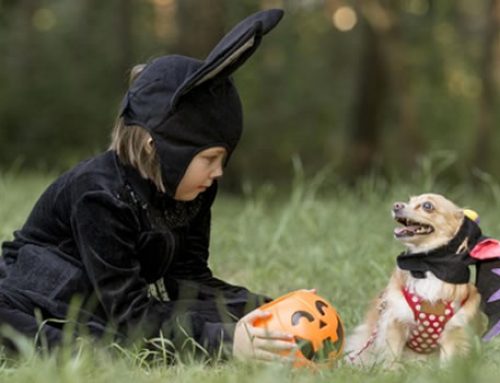During the holiday season, the kitchen will be filled with more delicious scents than normal. Curious dogs or cats will likely wander in, hoping to sample your tasty concoctions. While it can be tempting to give in to their sweet faces and shower them with table scraps, many dishes contain ingredients that can lead to an emergency trip to the veterinarian. Keep your furry friends safe by using this guide to determine what they can and cannot eat.
Do:
Carve them slices of turkey.
Turkey is a veterinarian-approved source of protein for cats and dogs. Before serving it to your pet, remove the skin to eliminate most of the salt, spices, and butter that can cause digestive issues, such as pancreatitis. Make sure the meat is well-cooked and bone-free to protect against salmonella and splintering that can harm a pet’s digestive tract.
Make them fresh pumpkin treats.
Fresh, plain cooked pumpkin is a healthy item for treating pet constipation and diarrhea. It’s also packed with fiber and nutrients like beta-carotene, zinc, potassium, and vitamins A, E, and C.
Mix 1-4 tablespoons into their normal food for a fun Thanksgiving treat. If you choose canned pumpkin, avoid pie filling since it likely contains xylitol—a very toxic ingredient for cats and dogs.
Don’t:
Give them foods containing Alliums.
Onions, garlic, leeks, scallions, and chives are common ingredients in many popular Thanksgiving dishes. These plants and any other species in the Allium genus are incredibly toxic to cats and dogs and can cause their red blood cells to break down.
A serving as small as 5 grams is enough to require an emergency trip to the veterinarian. Symptoms of Allium poisoning include vomiting, diarrhea, abdominal pain, loss of appetite, anemia, rapid breathing, high heart rate, weakness, and reddish or brown urine.
Let them eat bread dough.
If you plan on using raw-yeast bread dough this year, secure your cat or dog in another room while cooking. Their digestive systems are not designed to handle this ingredient.
Ingesting it would cause the substance to ferment in their stomach, converting the sugars in the dough to carbon dioxide and alcohol. This causes severe stomach bloating. As the alcohol is absorbed into the bloodstream, your pet would experience a drop in blood sugar, blood pressure, and body temperature. They would also be at risk of seizures and respiratory failure.
If you’re unsure which foods your pet can have this Thanksgiving, ask the experienced veterinarian at Wards Corner Animal Hospital. Dr. Timothy Henehan has over 30 years of experience providing quality pet care for dogs, cats, birds, and exotic animals throughout Cincinnati and Loveland, OH. Call (513) 683-2883 to schedule an in-office appointment or house call.




